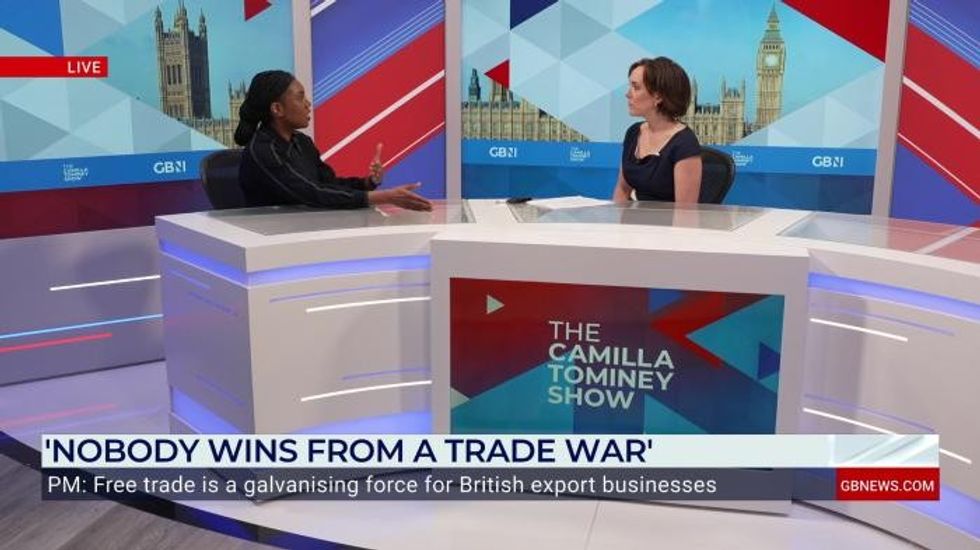
Global markets have plunged again as Donald Trump remains defiant on his tariffs, comparing them to “medicine”.
The US stock futures fell overnight ahead of opening on Monday, with the Dow Jones dropping by 1,033 points (2.68 per cent).
The S&P 500 futures shed 3.34 per cent, while Nasdaq futures plunged even further with 4.26 per cent.
Meanwhile Asian markets suffered a brutal opening on Monday morning, with the Hang Seng in Hong Kong plummeting by nearly 13 per cent, in what could end up being its worst day since 1997.
That means it has fallen by 20 per cent since its record highs in March, while in mainland China the CSI 300 in Shanghai fell by eight per cent.
This follows a market wipeout at the tail end of last week, with the FTSE100 closing at its lowest level so far this year, bottoming out at 8,054 – a drop of more than 800 points (10 per cent).
The Dow posted back-to-back losses of more than 1,500 points for the first time ever, including a 2,231-point fall on Friday.
The S&P 500 dropped six per cent on Friday for its worst performance since the outbreak of the coronavirus pandemic in March 2020.
The Nasdaq entered a bear market on Friday, down six per cent on both Thursday and Friday, and 22 per cent from its record.
Despite all this turmoil, President Trump has remained defiant, telling reporters late last night: “I don’t want anything to go down. But sometimes you have to take medicine to fix something.”
FOLLOW BELOW FOR LIVE UPDATES THROUGHOUT THE DAY…
Britain to suffer £22bn hit from Donald Trump’s tariffs
Donald Trump’s tariffs are set to deliver a £22billion hit to Britain, economists have warned.
New analysis from KPMG predicts that the US President’s trade war will shave 0.8 per cent off the economy over the next two years.
The ‘Big Four’ firm slashed the UK’s growth forecasts for the current year from 1.7 per cent down to 0.8 per cent as a result.
This will leave the UK £21.6bn worse off by 2027, as Trump’s 10 per cent tariffs threaten to derail Labour’s plans.
Yael Selfin, KPMG’s chief UK economist, said: “There are so many things that could get worse.
“Ultimately, the main worry is confidence. Trade disruption is bad, but uncertainty is the big unknown.”
